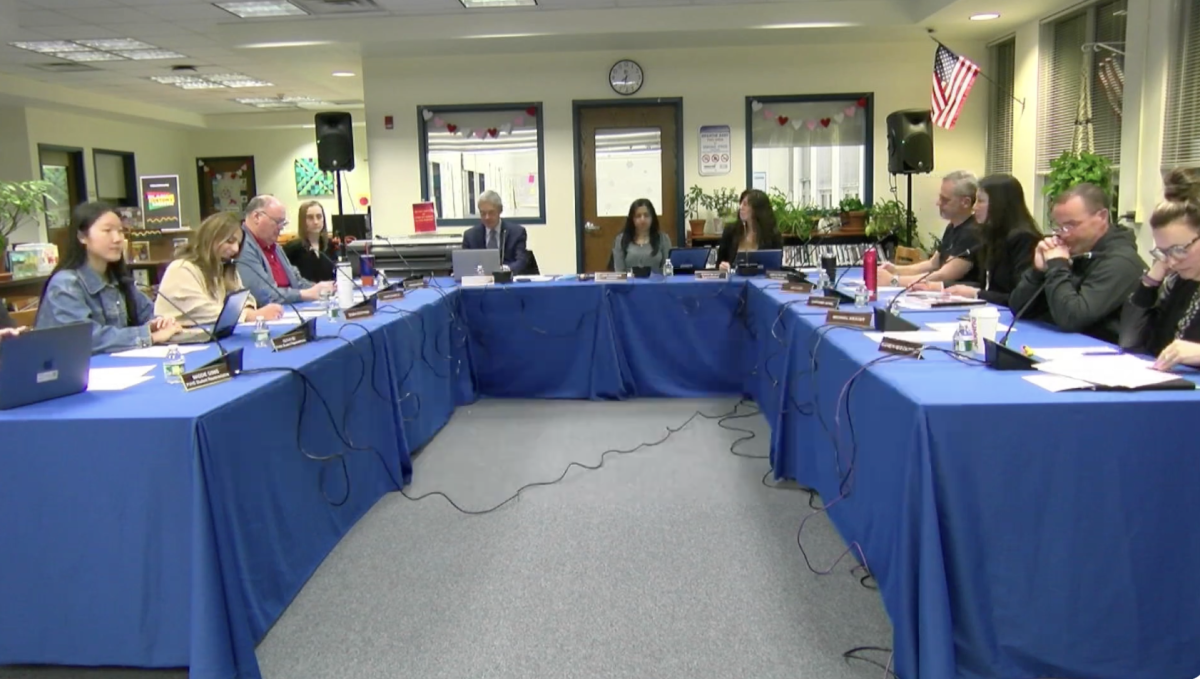
Because we still have a day called “International Women’s Day.”
The existence and continued celebration of last week’s International Women’s Day is proof of the need for social change regarding women’s equality. See, it is a catch-22; we need this day to act as an excuse to celebrate women on a world stage and explain how women should be treated equally to men in all aspects of life… yet the fact that these ideas must have a day set aside to be heard is unjust in-and-of-itself. You don’t see an “International Men’s Day” or a “White History Month.” Why not? Because those two entities are inherently dominant—a fact that is clear in everyday life. Examples of female subservience are everywhere: walk the streets of New York City, watch television, scale the lists of management positions. Although less transparent, International Women’s Day is yet another example of how women are viewed as lower. Despite its good intentions, International Women’s Day is oppressive merely in its continued existence.
Because “Stay-At-Home Mom” is considered less of a job than “Executive Financial Assistant.”
Society expects women to take care of the home and family, only to be criticized and looked down upon for doing so. Shayna Gehl, stay-at-home mom and blogger from New York City, illustrates her constant paranoia living in today’s judgmental age:
“After 15-hour days, I somehow feel guilty sitting down to rest… I often wonder if others are thinking, How can she be tired? She’s not working. Why is it I often feel I have to justify every minute of my day, explain that I really am doing ‘so much?’”
This all-too-common situation lends itself to the question: What defines a “job”? And who’s to say working in a cubicle is any more significant than working in a nursery? In a society so heavily based on the superficiality of labels, Gehl and many other women have come to feel shame “admitting” their role as stay-at-home mothers. Yet, flip the situation and the same stigma still exists; businesswomen remain criticized for omitting their evolutionary role as mothers in the name of professional success. What we must realize is that women deserve the freedom to do as they please, work where they want and label themselves as they wish—and they deserve to do so without the impeding sense of disrespect and judgment that currently exists.
Because female soldiers and war correspondents are consistently asked about and criticized for their “abandonment” of familial duties when serving their country.
In a documentary exploring the effects of being in a warzone, interviewers asked only the female participants if they have an increased struggle leaving their families behind as opposed to their male counterparts. This implies that females have an innate responsibility to take care of their children, more so than fathers. This sexist question suggests that women are therefore shortchanging their children by sacrificing their lives in the line of duty. It is an equally difficult choice for both women and men—mothers and fathers—to risk their lives serving their country. Both, however, ultimately make the choice for the common good of their children’s future. Whether they choose to do so on an intimate, personal scale within their home or on a more global scale working in the military is up to them. We need International Women’s Day to realize that either decision deserves to be commended equally.
Because the “Glass Ceiling” is still intact.
“Glass Ceiling” is a political term that describes the figurative (but oh-so-real) barrier that keeps minorities and women from “rising to the upper rungs of the corporate ladder, regardless of their qualifications or achievements.” In other words, it is the pretty-looking, sparkly-sounding euphemism for women’s inability to get promotions, pay raises and other opportunities in the workforce. More concrete, however, are the numbers: according to CNNMoney analysis, only 14.2 percent of women hold top five leadership positions in the Fortune 500 companies. More impactful is the fact that in the next four top positions, the group from which the aforementioned top five positions will be chosen from, only 16.5 percent of women hold currently jobs. As Rita McGrath said, “If you do not have women in the pipeline, they are not going to get the top job.” The worst part about a glass ceiling? The ability to see the possibilities of where you may go while the reality of the barrier remains.
Because women still view rape as their fault.
No matter how drunk a woman is, no matter how many or how few layers of clothing a woman has on, a woman would not be raped without the presence of a man’s actions. We need International Women’s Day because women are still often blamed for their own rapes. We need International Women’s Day because we still teach women how to prevent being raped rather than teaching men not to rape in the first place. A woman is sexually assaulted every two minutes in the US. One in six women will be sexually assaulted in her lifetime. Yet, only six percent of rapists will ever spend a day in jail (Rape, Abuse, Incest National Network). Rape and sexual violence has become normalized and excused by pop culture and the media as a whole. Boys will not just be boys; they must learn how to respect a woman and her body. “Manhood” must be redefined by respect rather than dominance over women. Women must gain back the rights to the preservation of their own bodies.
And because, naturally, everything I have listed above is regarding women in America only.
Looking at women’s equality becomes a case of macrocosm compared to microcosm. We are often too quick to stick to what we know and assume equality issues are most prevalent in our own country. So much so, we end up disregarding similar issues of equality around the world. At the end of the day, it is not a gender issue—it is a humanity issue. We, as a generation and as a community, must learn to be better. We must open our eyes, see the world for what it is, have a vision for what we would like it to look like, band together and make it a reality.








































